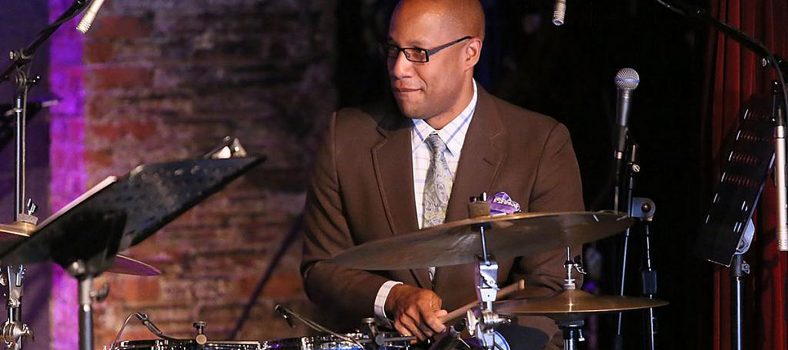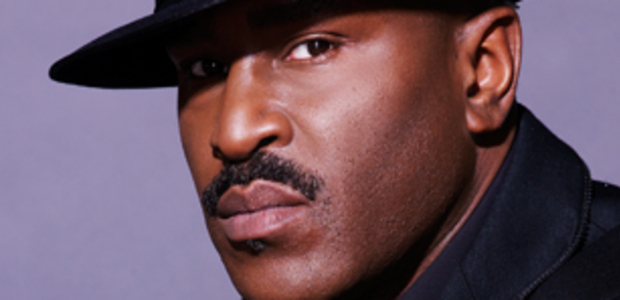
Easy Mo Bee is a Grammy-Award winning producer from Brooklyn, New York. In his storied career, he was worked with some of the biggest names in hip-hop – from L.L. Cool J and Big Daddy Kane to the Notorious B.I.G. and Tupac Shakur. Primarily known for his jazzy, yet hard-hitting hip-hop production, Easy Mo Bee has shown great diversity, constructing elegant musical backdrops for some of R&B’s most recognizable acts.
Today, we would like to highlight one very specific moment in his life. It was in 1991 that Easy Mo Bee met Miles Davis. For younger audiences, the marriage of hip-hop and jazz seems commonplace. Jose James intertwines hip-hop sensibilities throughout his jazz-based catalog. Robert Glasper’s blessed union has received critical acclaim and a Grammy-Award to boot. However, this is where it all began. This was the genesis that bridged the gap between the past and the future, creating something well ahead of its time.
That is standalone impressive. We could endlessly discuss the merits of the work done by both Miles Davis and his counterpart, Easy Mo Bee. And yet, there is something much greater at play. While Easy Mo Bee had the opportunity to work with a musical legend, what is even more compelling is the fact that he can provide us with a firsthand account into the musician’s last days. During the recording of their joint album, Doo-Bop, Davis passed away, leaving Easy Mo Bee to finish the album without the man who drew out of him some of his best work.
iRockJazz recently sat down with Easy Mo Bee to talk about his time working with Miles Davis and the man himself.
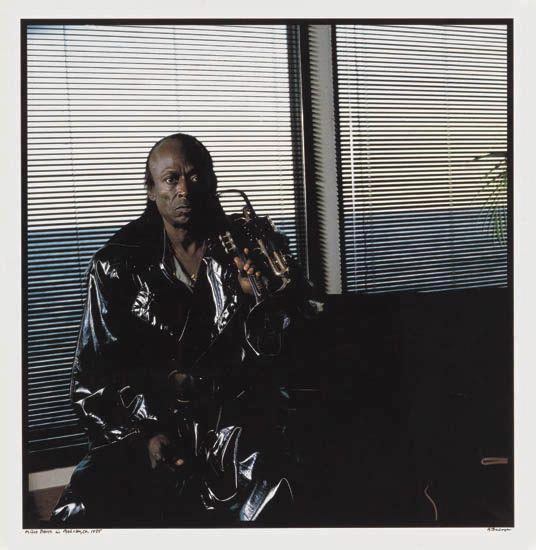 iRJ: Where did you meet Miles Davis? Were you nervous?
iRJ: Where did you meet Miles Davis? Were you nervous?
EMB: My manager, Francesca Sparrow, she calls me up one day and says, ‘Listen. Miles Davis has been hanging out with Russell [Simmons] and he wants to get into hip-hop. Russell told me to have the producers here on the roster put together some reels and get them to Miles. So I need some music from you’. Eventually a meeting was set up to go to his house. The first time I went, I went by myself. He played my reel back to me. One of the songs on that reel was called “True Fresh MCs” by – at that time he wasn’t even the GZA yet, he was just “The Genius” from Wu-Tang. He pointed that “True Fresh MCs” song out and goes crazy. He ends up telling me, ‘That’s bad. I like that one. That’s bad. You do that for me. That right there, you do that for me’. There was a second meeting with me and a whole bunch of other producers. It was like a joint meeting. After everybody else played, he saved me for last. And then he told me, ‘You’re the one. I want to work with you’.
iRJ: Was this before you joined Puffy and Bad Boy or was this after?
EMB: Seconds before. You can say seconds before because me and Miles started collaborating in ‘91. The album was released in ‘92. He passed away towards the end of the recording. Actually, we got six songs done and to make a complete album, Warner Brothers dug into the vault of recordings and pulled out two songs for me and they said, ‘Look this is what we’re going to do. You have six songs. We want you to remix these two songs from his vault. They’ve never been released. We want you to strip away all of the music and rebuild a new a song around these two’. Those two songs that completed the album ended up being “Fantasy” and “High Speed Chase. And with the addition of those two songs to the six that we had, plus a reprise of “Mystery,” it came to nine songs and that completed the album.
iRJ: What was it like working with Miles in the studio?
EMB: Miles is Miles. He might get a little excited, but he ain’t gonna get too excited [laughs]. [My engineer and I] were used to working with rappers and singers. Traditionally, if a person does their verse, they record that verse and then the engineer will usually stop the tape and rewind it back so you could listen back or maybe they stop because they don’t know what else the artist wants to do next. So my engineer, Eric Lynch, he does that. He stops the tape after like the first trumpet verse on, “The Doo Bop Song” and Miles says, ‘Hey! What the fuck you doing? Bring my shit back. What are you doing? Don’t stop the tape. Let it roll! Let it go’! Miles jumped all over my engineer [laughs]. I remember Miles invited his girlfriend to the studio. I think that was one of the last times I saw him. He was in such a good mood. He was real playful, having fun with his girlfriend and everything. Then I also saw the other side too. I had been to the house and I was playing Miles some music and he sat there and he was listening and, I don’t know, I guess it took too long. After a while he lays back on the couch and he has his arm over his head. Picture if someone has a headache. So I asked him, I said, ‘Miles, you alright’? He said, ‘Just leave the tape over there. I’m getting kinda tired. Yeah. I’m getting kind of tired’. So I asked his assistant, I said, ‘He alright’? And he said, ‘Yeah. He’s probably getting a little tired. Just leave the tape and he’ll get back to you’. And he did.
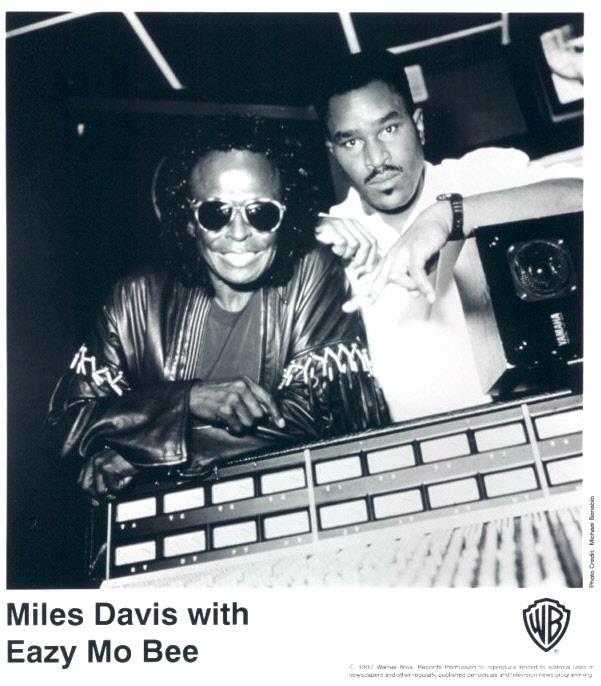 iRJ: Who were the other musicians that played on Miles’ album?
iRJ: Who were the other musicians that played on Miles’ album?
EMB: Deron Johnson. Dude was immaculate on the keyboard. I watched them get into arguments in the studio too. We were recording, I think it was “High Speed Chase” and there’s some complex section where whatever Miles was playing he wanted Deron to play the same thing on top of him and Deron just couldn’t get it. And Miles said, ‘Motherfucker, can’t you play the shit’?! [laughs] And Deron’s like, ‘Alright I’ma get. I’ma get it’. Miles is like, ‘Alright. Play the mothafuckin’ shit. Just play it. The fuck is wrong with you’? You know I ain’t used to nobody talking to each other like that in the studio [laughs]. But to answer your question, Deron was the only guest musician of his, that performed on the album. The whole rest of everything, believe it or not, I produced that whole Doo-Bop album by myself. I came with my tracks and he had Deron go throughout the album and the different songs that needed it. Then Deron would also go on top and lace things. So basically it was just me and Deron in spots.
iRJ: How did find out that Miles had been sick?
EMB: Through his manager, Gordon Meltzer. It was Gordon that called me up and told me. Remember I told you I was at the house and Miles said, ‘Leave the tape. I’m kinda tired’. What he didn’t tell me and what the assistant didn’t want to tell me was that Miles was sick and that he was going through something at that time. So Gordon called me and told me, he said, ‘Listen, Miles, he’s in the hospital. I don’t know. We may lose him. He’s that sick’.
iRJ: When did you know that Miles had passed?
EMB: Francesca. My manager. She was the one that relayed the message. And man, it just broke me up. I was probably home. Like I said, it just broke me up, man. Because me and this man had established a relationship. I remember we were in the studio one time and he had actually told me, he said, ‘You wanna go on the road with me’? I said, Yeah! But Miles, what am I gonna do? I got this sampler…’. He said, ‘Yeah. Just bring it. Bring your shit. You bring it on stage live with me’. So this is what it could have evolved to. This man was talking about taking me on the road with him. That would have been…aw man. And if he had stayed alive, it would have evolved into further collaboration maybe on future albums, future projects and stuff like that. Man, that really broke me up when he passed. And then Francesca called me a little later and told me that they had nominated Doo-Bop for best R&B Instrumental Performance. Why that category and why it wasn’t exactly in jazz, I’m not sure. But he won. It won a Grammy.
iRJ: What was it like to finish the last two songs without Miles?
EMB: Well I’m thinking about the process of everything else that we were doing—the aura, the vibe that was created so far. I was just trying to make sure that those songs matched the other six. In other words, when a person sat down and listened to this it couldn’t be like there was this flow, this continuity through the six and then when you get to the other two that something jumped up at you. So I made sure that they all fit and that the continuity would be like you’d have a straight listen through and you’d have no idea that we weren’t together for those last two.
iRJ: What happened after that point in playing with Miles and having won the Grammy? What changed for you, if anything?
EMB: If you remember, anywhere around the period of say like the early 90s, it was almost taboo for a rapper to win a Grammy. Back then, hip-hop dictated that if you won a Grammy, you sold out. That’s it. You sold out. It’s over for you [laughs]. We watched that kind of attitude and treatment towards Tone-Lōc, Will Smith. Young MC, Vanilla Ice, that kind of thing. So I had this big fear that that was going to happen to me. And then one of the best things that could have happened – happened right after that. Francesca gave me a call and she said, ‘Listen, Puffy that works under Andre Harrell at Uptown [Records] has a new artist up there; they need tracks. So I’m going to send you up there to play music for them’. So I go up there and I play music; come to find out the artist’s name is Biggie Smalls.
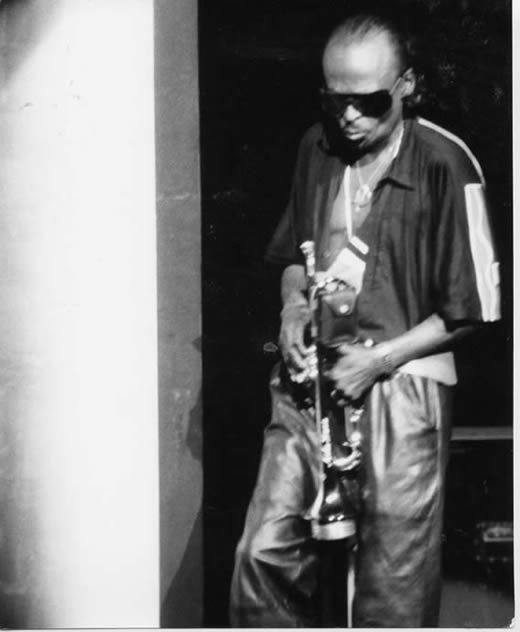 iRJ: What was Miles’ funeral like?
iRJ: What was Miles’ funeral like?
EMB: Really, really sad. Everybody that you could name, a who’s who came out. We lost an icon. A legend. And ever since then it seems like we’ve been losing nothing but the greats. You want to know something? You know who really hurt me, man? James Brown. It’s so crazy that we’re having this interview because within a maybe a week, a week and a half, we’re also coming up on June 25th—MJ’s death. Those also messed me up and I never even worked with them. But it’s just like c’mon man; I grew up highly influenced by these people’s music. It’s just some people you don’t want to even imagine them dying and leaving here. We all gotta leave here sooner or later, but I think MJ and James messed me up in the same kinda way.
Easy Mo Bee is a legend, one whose own career we will expand upon at a future date. Today, however we chose to listen to his thoughtful words as they slowly sketched a vivid imagery of final musical moments in the life of Miles Davis. Through the lens of hip-hop (And yes, Easy Mo Bee is truly the personification of the form), we can see Davis being who he always was – an innovator. We don’t know what the future might have held for the two. A tour? Perhaps. More albums? Why not. Another Grammy? I would think so.
Despite being left with so many questions, we can, at least, say this: The relationship of Easy Mo Bee and Miles Davis gave us a seminal moment in music, one in which we are still, over two decades later, reaping the benefit.
By Paul Pennington




